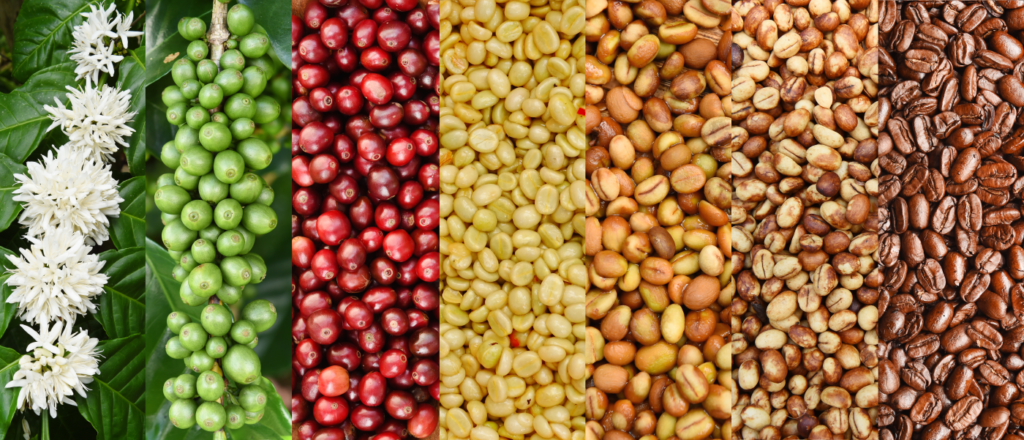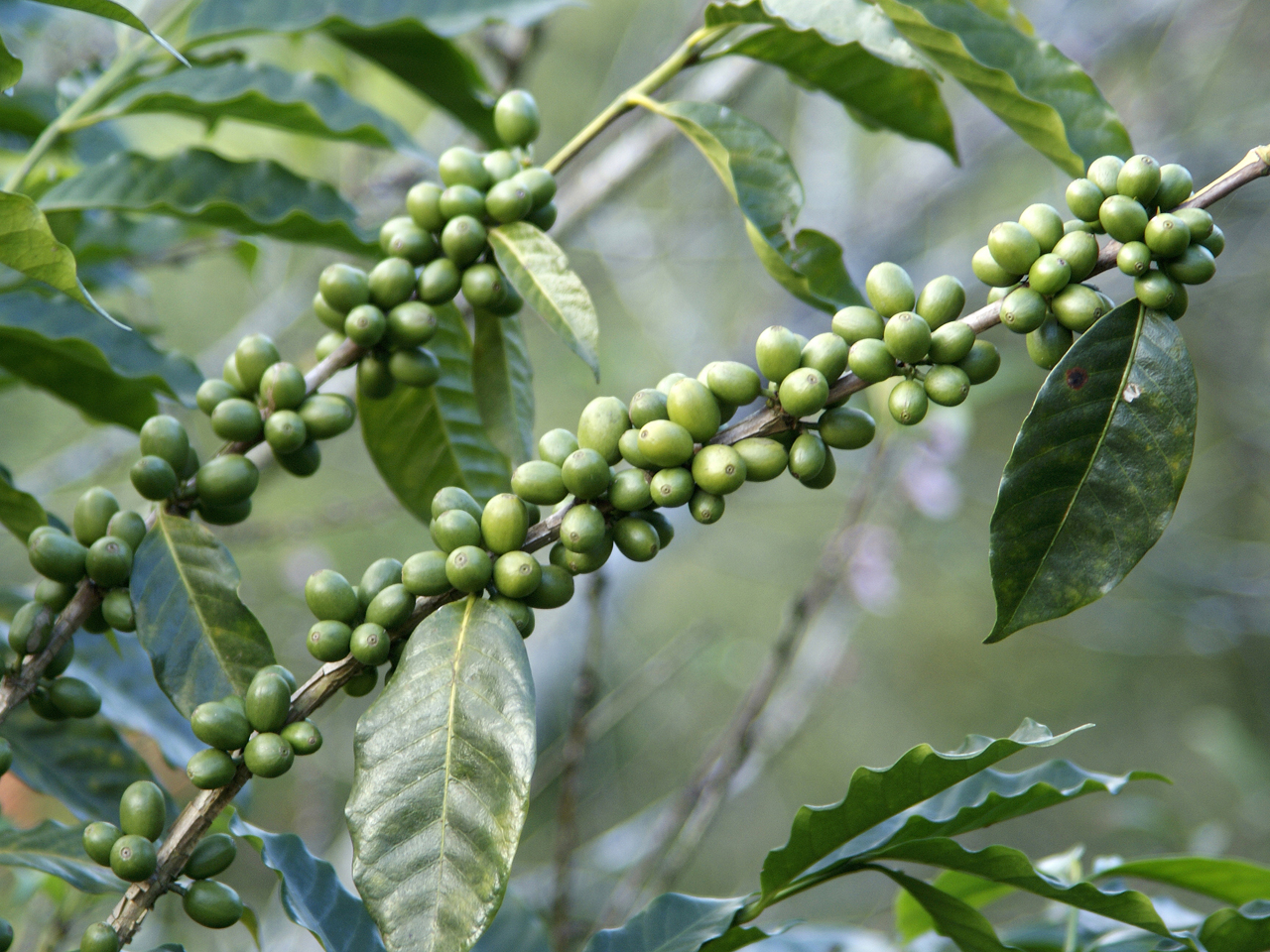Coffee Bean
Coffee Bean
A coffee bean is the seed of the coffee plant (the pit inside the red or purple fruit). Even though they are seeds, they are referred to as ‘beans’ because of their resemblance. The coffee cherries or coffee berries, most commonly contain two stone like seeds with their flat sides together. In a crop of coffee, a small percentage of cherries may contain a single bean, instead of the usual two which is called a pea berry.
There are two methods of processing the coffee berries. The first method is wet processing. In this method, the flesh of the berries are separated from the seeds and then the seeds are fermented – soaked in water. This dissolves any pulp or sticky residue that may still be attached to the seeds. They are then washed and dried in the sun. The other method is called the dry processing method .Here twigs and other foreign objects are separated from the berries and then the fruit is spread out in the sun on cement or brick for 2–3 weeks, turned regularly for even drying. The dried pulp is removed from the seeds afterwards


Health Benefit Of Coffee
I Increase energy level and makes you feel smarter
Coffee can help people feel less tired and increase energy levels. That’s because it contains a stimulant called caffeine. Caffeine blocks an inhibitory neurotransmitter in your brain, which causes a stimulant effect. This improves energy levels, mood and various aspects of brain function.
Can help to burn fat
Caffeine is found in almost every commercial fat-burning supplement — and for good reason. It’s one of the few natural substances proven to aid for fat burning. Many studies indicate that caffeine can specifically increase fat burning by as much as 10% in obese individuals and 29% in lean people
Can drastically improve physical performance
Caffeine can increase adrenaline levels and release fatty acids from your fat tissues. It also leads to significant improvements in physical performance. Adrenaline is the fight-or-flight hormone, which prepares your body for intense physical exertion
It contains essential nutrients
- A single cup of coffee contains
- Riboflavin (vitamin B2): 11% of the Reference Daily Intake (RDI).
- Pantothenic acid (vitamin B5): 6% of the RDI.
- Manganese and potassium: 3% of the RDI.
- Magnesium and niacin (vitamin B3 ): 2% of the RDI.
Lower the Risk of Type 2 Diabetes
Studies show that people who drink the most coffee have a 23–50% lower risk
of getting this disease. One study make a reduction as high as 67%
Protect from Alzheimer’s disease and Dementia
Lorem ipsum dolor sit amet, consectetur adipiscing elit. Ut elit tellus, luctus nec ullamcorper mattis, pulvinar dapibus leo.
May Lower Your Risk of Parkinson’s
Studies show that coffee drinkers have a much lower risk of Parkinson’s disease, with a risk reduction ranging from 32–60%. Parkinson’s disease is the second most common neurodegenerative disorder right behind Alzheimer
May Protect Your Liver
Interestingly, coffee may protect against cirrhosis — people who drink 4 or more cups per day have up to an 80% lower risk of cirrhosis which can be caused by several diseases that affect the liver.
Can Fight Depression and Make You Happier
In a Harvard study published in 2011, women who drank 4 or more cups of coffee per day had a 20% lower risk of becoming depressed.
Lower the risk of certain Types of Cancer
Coffee appears to be protective against two types of cancer: liver and colorectal cancer. Liver cancer is the third leading cause of cancer death in the world, while colorectal cancer ranks fourth . Studies show that coffee drinkers have up to a 40% lower risk of liver cancer. Similarly, one study in 489,706 people found that those who drank 4–5 cups of coffee per day had a 15% lower risk of colorectal cancer
May Help You Live Longer
Given that coffee drinkers are less likely to get many diseases, it makes sense that coffee could help you live longer. Many studies show that , drinking coffee was associated with a 20% reduced risk of death in men and a 26% decreased risk of death in women, over 18–24 years.
It is the Biggest Source of Antioxidants
Studies show that many people get more antioxidants from coffee than from fruits and vegetables combined.